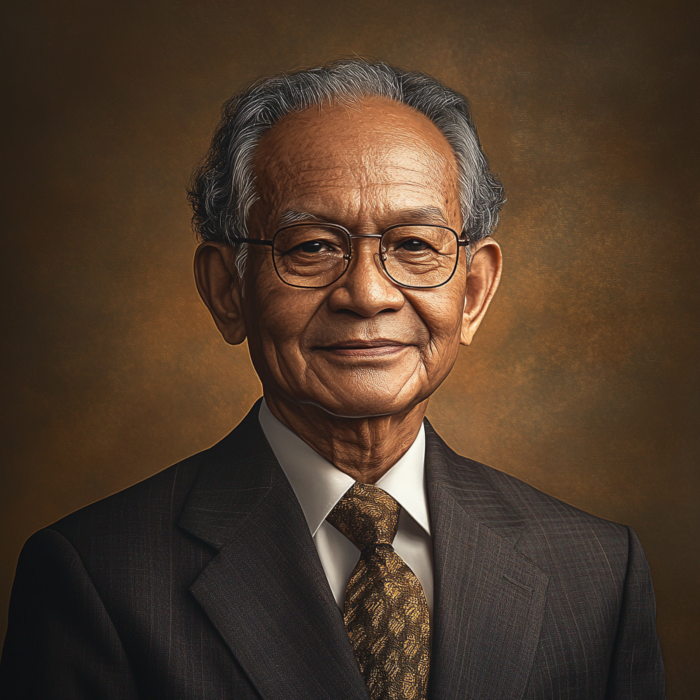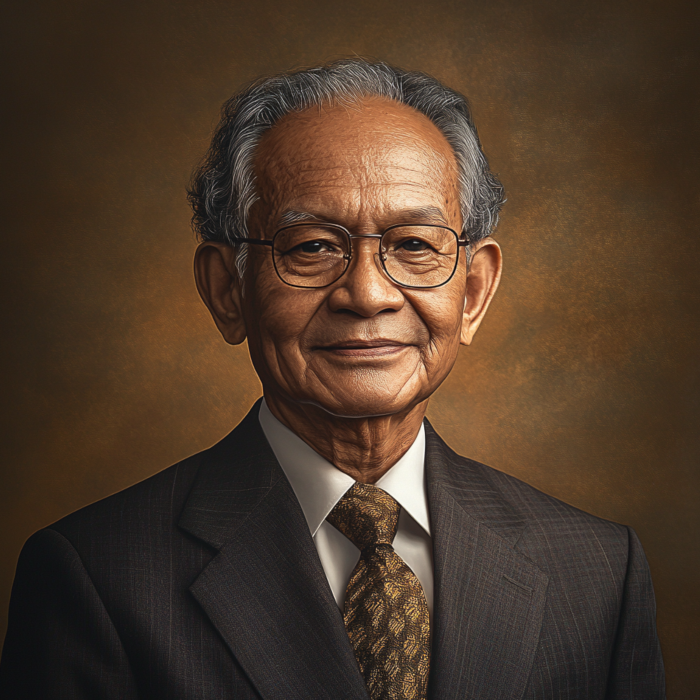


Pramoedya Ananta Toer (1925–2006) was an influential Indonesian author and intellectual, widely regarded as one of the greatest literary figures in Southeast Asia. His work often addressed the themes of colonialism, nationalism, and the struggle for independence, as well as the complexities of modern Indonesian identity. Pramoedya’s writings, particularly his acclaimed "Buru Quartet" series, have earned him international recognition, despite facing significant censorship and persecution during his lifetime.
Pramoedya grew up during a time of significant political change in Indonesia, with the country striving for independence from Dutch colonial rule. His early experiences in colonial Java deeply influenced his worldview and his later work as a writer.
Pramoedya began his career as a writer in the 1940s, during the Japanese occupation of Indonesia. His early works were short stories and articles that reflected his deep concern for social justice and Indonesian independence.
First Novels: His first novel, The Fugitive (1949), was set during the final days of the Japanese occupation and explored the psychological impact of war on individuals. This novel established Pramoedya as a powerful new voice in Indonesian literature.
Political Imprisonment: In the 1960s, Pramoedya was associated with leftist and anti-colonial movements, which led to his arrest during the anti-communist purge that followed the failed coup attempt in 1965, widely attributed to the Indonesian Communist Party (PKI). Pramoedya was imprisoned without trial for 14 years, from 1965 to 1979, much of it spent on the remote Buru Island, a notorious penal colony.
While imprisoned on Buru Island, Pramoedya was denied access to writing materials for the first several years. Undeterred, he began orally composing and sharing a series of stories with his fellow prisoners. These stories would eventually be published as the "Buru Quartet," his most famous work.
The Buru Quartet consists of four novels:
The series is set in the Dutch East Indies in the late 19th and early 20th centuries and follows the life of Minke, a young Javanese man of royal descent who becomes increasingly aware of the injustices of colonial rule. Through Minke’s story, Pramoedya explores the broader social, political, and cultural changes occurring in Indonesia during this period, including the rise of nationalist consciousness.
Themes: The Buru Quartet delves into the struggles against colonialism, the complexities of identity, and the conflicts between tradition and modernity. The novels also critically examine the roles of education, gender, and class in shaping Indonesian society.
Censorship: Despite their literary acclaim, the Buru Quartet was banned in Indonesia during the Suharto regime, which considered the books to be subversive. However, they gained international recognition and were translated into many languages, bringing Pramoedya widespread acclaim.
After his release from prison in 1979, Pramoedya continued to face restrictions on his freedom, including government-imposed censorship and travel bans. Nevertheless, he remained an outspoken critic of authoritarianism and continued to write essays, short stories, and historical novels.
Awards and Recognition: Pramoedya received numerous international awards and honors for his work, including the PEN/Barbara Goldsmith Freedom to Write Award, the Ramon Magsaysay Award for Journalism, Literature, and Creative Communication Arts, and several nominations for the Nobel Prize in Literature. Despite this, he was often overlooked by the Indonesian literary establishment during his lifetime due to his political associations.
Death: Pramoedya Ananta Toer passed away on April 30, 2006, in Jakarta, Indonesia. He left behind a significant body of work that continues to influence writers and intellectuals in Indonesia and beyond.
Pramoedya Ananta Toer’s legacy is that of a fearless writer who used his literary talents to fight against injustice and colonial oppression. His works, especially the Buru Quartet, are considered masterpieces of world literature and provide a poignant exploration of Indonesia’s history and the complexities of its cultural identity.
Despite facing severe repression, Pramoedya’s voice has endured, making him a symbol of the power of literature to challenge authority and inspire change. His commitment to truth and justice, even in the face of personal suffering, has made him a revered figure in the annals of both Indonesian and world literature.

We use cookies
We use cookies and other tracking technologies to improve your browsing experience on our website, to show you personalized content and targeted ads, to analyze our website traffic, and to understand where our visitors are coming from. Privacy Policy.